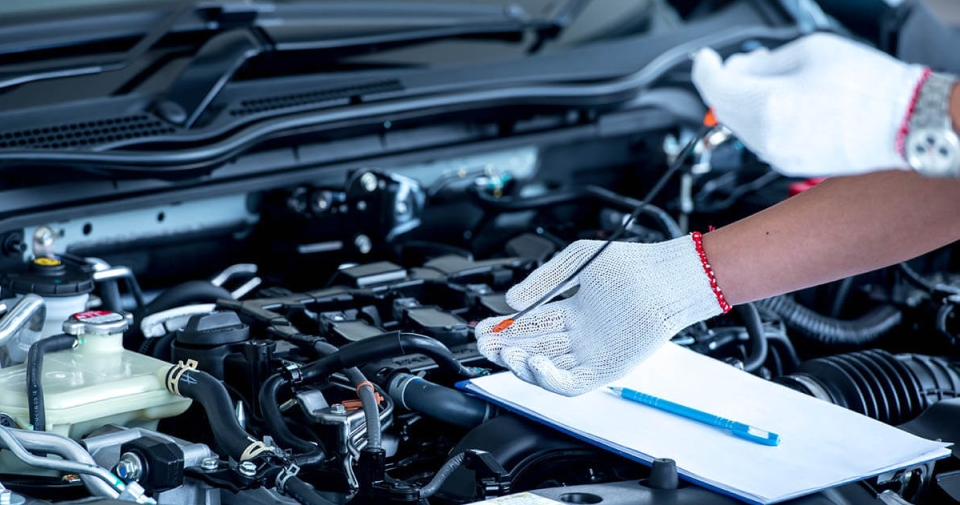
Keeping your vehicle in good working condition through regular maintenance is essential for ensuring safety, reliability, and longevity. Proper vehicle maintenance can significantly reduce the likelihood of experiencing roadside emergencies, which can be inconvenient, costly, and potentially dangerous. Here’s why regular vehicle maintenance is crucial and how it can help you avoid unexpected breakdowns.
1. Enhancing Vehicle Reliability
Preventative Measures
- Routine Inspections: Regular inspections can identify potential issues before they become serious problems. Checking essential components such as brakes, tires, fluids, and lights can prevent failures that could leave you stranded on the road.
- Scheduled Maintenance: Following your vehicle’s recommended maintenance schedule for services like oil changes, brake pad replacements, and timing belt checks ensures that all systems are functioning correctly and efficiently.
Reducing Breakdowns
- Component Wear and Tear: Over time, parts of your vehicle will naturally wear out. Regular maintenance helps replace these parts before they fail, reducing the risk of breakdowns.
- Fluid Levels and Quality: Maintaining proper levels of essential fluids like oil, coolant, transmission fluid, and brake fluid is critical. These fluids lubricate and protect various engine and vehicle components, preventing overheating and mechanical failure.
2. Ensuring Safety on the Road
Brake System Maintenance
- Brake Checks: Regularly inspecting and servicing your brakes is vital for safe driving. Worn brake pads, low brake fluid, or malfunctioning brake components can compromise your ability to stop quickly, increasing the risk of accidents.
- Brake Fluid Replacement: Replacing brake fluid as recommended by your vehicle’s manufacturer helps maintain the brake system's efficiency and responsiveness.
Tire Care
- Tire Pressure: Keeping your tires properly inflated ensures optimal contact with the road, improving traction and handling. Under-inflated or over-inflated tires can lead to blowouts or uneven wear, increasing the likelihood of a roadside emergency.
- Tire Tread: Regularly checking tire tread depth and replacing tires when they become too worn can prevent skidding and loss of control, especially in wet or icy conditions.
Battery Health
- Battery Inspections: Regularly testing your vehicle’s battery can prevent unexpected failures. Ensure that battery terminals are clean and free of corrosion, and replace the battery if it shows signs of weakness or is several years old.
3. Improving Fuel Efficiency
Engine Performance
- Tune-Ups: Regular engine tune-ups ensure that spark plugs, air filters, and fuel filters are in good condition. This helps the engine run more efficiently, improving fuel economy and reducing the risk of engine-related roadside emergencies.
- Oil Changes: Changing your engine oil at the recommended intervals reduces friction and wear on engine components, helping your vehicle run smoothly and efficiently.
Tire Maintenance
- Alignment and Balance: Properly aligned and balanced tires reduce rolling resistance, improving fuel efficiency. Misaligned wheels can cause uneven tire wear and increase fuel consumption.
4. Extending Vehicle Lifespan
Longevity of Components
- Preventative Replacement: Regularly replacing worn components like belts, hoses, and filters prevents them from failing unexpectedly. This proactive approach extends the lifespan of your vehicle by ensuring that all parts are functioning optimally.
- Fluid Flushes: Periodic flushing and replacing of fluids, such as coolant and transmission fluid, remove contaminants that can cause corrosion and damage, thereby extending the life of these systems.
Maintaining Resale Value
- Service Records: Keeping detailed service records of regular maintenance can boost your vehicle’s resale value. Prospective buyers are more likely to purchase a well-maintained vehicle, and comprehensive records demonstrate your commitment to its upkeep.
5. Minimizing Repair Costs
Early Detection of Issues
- Identifying Problems Early: Regular maintenance allows for early detection of issues, which are often less expensive to fix than major repairs. Addressing minor problems promptly can prevent them from developing into costly repairs.
- Warranty Compliance: Following the manufacturer’s maintenance schedule helps keep your vehicle under warranty, potentially saving you money on repairs that are covered by the warranty terms.
Avoiding Emergency Repairs
- Predictable Maintenance Costs: Routine maintenance can be planned and budgeted for, unlike emergency repairs, which can be unexpected and expensive. Regular maintenance helps avoid the financial burden of sudden breakdowns and emergency towing services.
6. Practical Maintenance Tips
Regular Oil Changes
- Follow Recommendations: Change your engine oil and oil filter at the intervals recommended by your vehicle’s manufacturer. Fresh oil lubricates engine components, reducing wear and preventing overheating.
- Monitor Oil Levels: Check your oil levels regularly and top up if necessary. Low oil levels can cause significant engine damage and increase the risk of breakdowns.
Fluid Checks and Replacements
- Coolant: Ensure your vehicle has the correct level of coolant to prevent overheating. Flush and replace coolant as recommended to maintain the cooling system’s efficiency.
- Transmission Fluid: Regularly check and replace transmission fluid to ensure smooth shifting and prevent transmission failure.
Brake and Tire Maintenance
- Inspect Brakes: Regularly check the condition of brake pads, rotors, and fluid levels. Replace worn brake components promptly to ensure safe stopping power.
- Monitor Tires: Check tire pressure and tread depth regularly. Rotate tires as recommended to promote even wear and extend their lifespan.
Battery Maintenance
- Test Battery: Periodically test your battery’s charge and replace it if it shows signs of wear. Clean the terminals to prevent corrosion and ensure a reliable electrical connection.
- Keep Terminals Clean: Remove any corrosion or buildup from the battery terminals to ensure a strong connection and prolong battery life.
Conclusion
Regular vehicle maintenance is essential for avoiding roadside emergencies and ensuring your vehicle’s safety, reliability, and longevity. By keeping up with routine inspections, fluid checks, and component replacements, you can significantly reduce the risk of unexpected breakdowns and costly repairs. Maintaining your vehicle not only enhances its performance and fuel efficiency but also provides peace of mind, knowing you’re doing everything possible to avoid roadside emergencies. Whether through personal diligence or using professional services, investing in regular maintenance is a smart and responsible way to keep your vehicle running smoothly.